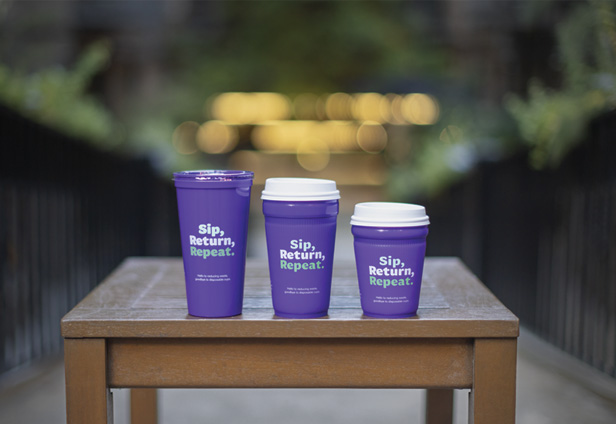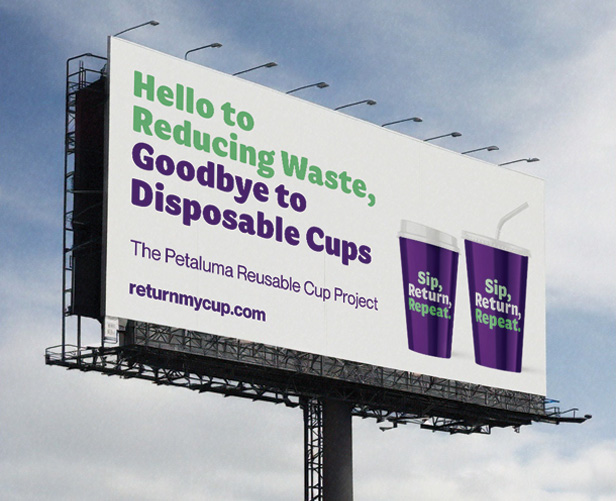Sustainability July 09, 2024
Sip, Return, Repeat: How This City Is Ditching Single-Use Cups
In a collaboration between global and local brands, one California city is replacing all single-use cups with reusables.
Reusable cups will become the default for all restaurants in a California city thanks to the Petaluma Reusable Cup Project, an unprecedented partnership between national chains and local businesses in an environmental coalition.
More than 30 restaurants in Petaluma, CA, will replace all single-use cups with reusables at no cost to customers from August to November 2024. Return bins will be installed across the city so the cups can be washed and recirculated.

Petaluma, CA, is participating in a pilot program to encourage reusable cup use from August to November this year.
The project aims to create consumer return habits and catalyze reuse systems. The collaboration between national chains like Starbucks and local businesses make this initiative “distinctly powerful” in reestablishing culture norms.
“It takes an entire community to build the future of reuse that we want to see,” said Michael Kobori, Starbucks chief sustainability officer. “Together with fellow foodservice brands, local stores and community stakeholders, we’re leading this initiative to help further unlock behavior change toward reusables.”
Every single-use cup that would be thrown out and end up in a landfill will be swapped with a reusable purple vessel printed with the message “Sip, Return, Repeat.” After use, the customer drops it at one of the 60 return bins around Petaluma or a restaurant where the cups will be washed, sanitized and redistributed to participating businesses.

Petaluma was chosen for the pilot program because of its dense downtown area and the receptiveness businesses and consumers have to reuse practices.
The cups can handle both hot and cold drinks. They’re designed to be durable enough to withstand multiple uses and are made with plastics that can be recycled if worn down. Starbucks has its own version of the cup, marked with fill lines for baristas, that can be reused and dropped in the bins like the others.
The initiative will collect data on customer participation and the environmental impact of offering reusable cups as the default option to determine its viability on a larger scale.
This is the latest step NextGen Consortium, led by the Center for the Circular Economy at Closed Loop Partners, has taken toward advancing reuse. Starbucks is a founding partner of NextGen and has participated in other initiatives for their mission.
Located in the northern Bay area, Petaluma was picked because of its dense downtown area and the receptiveness of businesses and consumers to reuse practices. Local politicians and leaders helped adapt the initiative to local policy and infrastructure.
“The City of Petaluma is laying the groundwork to make cup reuse not only an option, but the default,” said Mayor Kevin McDonnell. “We look forward to assisting the success of this program, alongside our local restaurants and participating global brands that service our community.”
This isn’t the first circular pilot program Closed Loop Partners has launched. A few years ago, ChicoBag (asi/44811) participated in the “Beyond the Bag” program to increase the use of reusable bags at retailers in northern California.
An estimated 50 billion single-use cups are purchased and disposed of each year, with an average life span of less than one hour before becoming waste. Reusable drinkware – a growing category in the promotional products industry – is helping to tackle the waste issue, but the best way to scale reuse, according to Closed Loop Partners, is to create an “easy and enjoyable consumer experience that makes it easy for customers to remember to bring their own containers or to return one that was given to them.”

Promo for the Planet is your destination for the latest news, biggest trends and best ideas to help build a more sustainable and socially-responsible industry.
